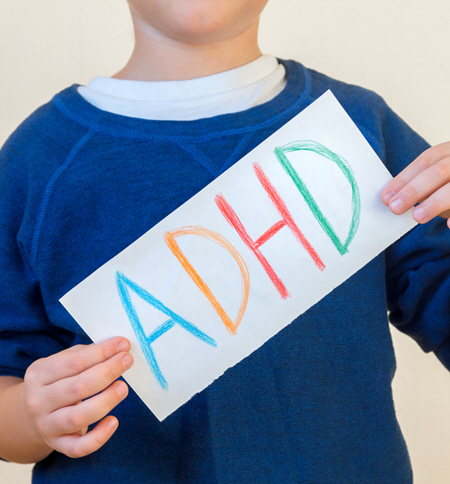Vigilance is a part of parenting.
Part of normal childhood development involves being active and full of energy. As any parent also knows, a child’s attention span is rather short.
However, persistent inattentiveness and hyperactive/impulsive behavior may point to problems that go beyond normal child development.
This is especially noticeable when the child starts school. Your child may be inattentive in the classroom, have trouble following instructions, and unable to focus on tasks. Rather than paying attention, they become distracted.
Maybe your child’s teacher sends notes home stating that Johnny or Sue is incapable of staying seated, talks all the time, and interrupts others.
This is when vigilant parents begin to worry; and during these times, it is best to seek professional help.
 ADHD can impact your child’s development.
ADHD can impact your child’s development.
Some of the behaviors described previously may be symptomatic of ADHD. Left unchecked, this disorder can impact your child’s ability to interact with other children, family, and in school settings.
These behaviors can continue into adulthood, exacerbating anxiety, depression, and “failure to launch.”
Treatment for ADHD is available.
Research shows the best recommended treatment is a combination of psychiatric medication and psychotherapy.
Many clients prefer one form of treatment or the other.
An evaluation with a counselor and a medical doctor is recommended.
However, pharmacotherapy is recommended as a last resort.
Counseling is an effective solution.
Counseling can be as effective as medication, because often clients are unaware of the problems with their behavior.
We separate the problem behaviors from the client – so the client is not the problem; the behaviors are the problems.
 Becoming aware is the first step.
Becoming aware is the first step.
Increasing awareness and focusing on broad goals, such as respect, safety, following directions, and having fun, clients learn to think critically and focus their energy.
Kids learn best through play, and therapy usually sounds like fun!
Let’s address concerns based on your vigilance.
The first step is contacting us, so we can help address the problems that you have observed. Then, we can work together to find a solution.
Our goal is to help your child gain focus and the ability to overcome behaviors that hinder his or her development.
Contact us today by completing the contact form below or calling (959)210-6800.

